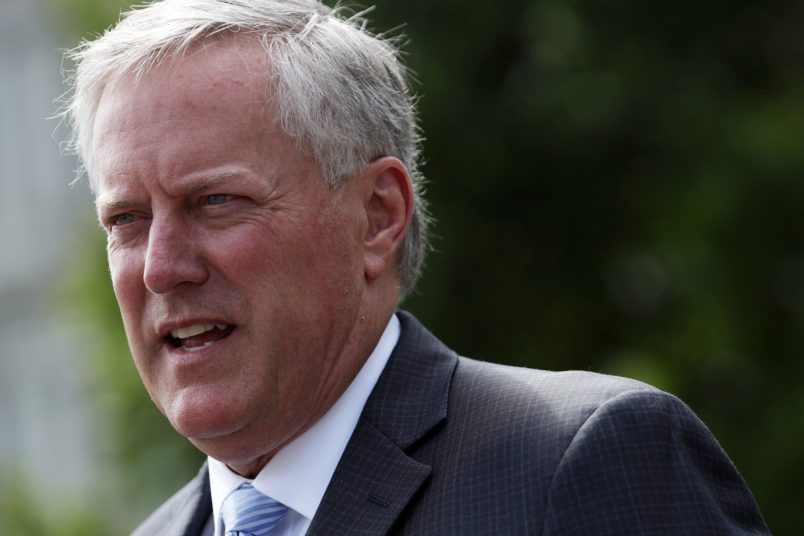Hours before the Jan. 6 committee is set to refer former White House chief of staff Mark Meadows to be held in contempt of Congress for refusing to comply with its subpoena, Meadows’ lawyer George Terwilliger III hit back at the panel in a letter arguing that “such a referral would be contrary to law.”
Terwilliger wrote that he and his client “recognize and do not dispute” the “deplorable and unjustifiable events” of Jan. 6, but argued that Meadows’ choice to refuse a deposition by the committee is “an attempt to comply with his legal obligations as a former advisor to the president.”
“History and the law teach that this attempt is not a crime,” Terwilliger wrote.
In the letter, Terwilliger doubled down on his client’s executive privilege argument for withholding materials from the panel in its investigation.
“An executive branch official who makes a colorable claim of privilege is simply taking the course they believe the law requires them to take,” he wrote. “The executive privilege and testimonial immunity do not belong to individual executive officials and they are not free to waive it. It would be unjust to refer such an official for prosecution before a court even has a chance to pass upon the merits of their claims.”
Terwilliger’s Monday letter to the committee was issued a day after the committee released a 51-page contempt of Congress report, detailing its case against Meadows and some of the information Meadows turned over to the committee so far. The panel is scheduled to meet Monday evening to consider holding Meadows in contempt for defying its subpoena before forwarding the recommendation to the full House.
Despite his return to stonewalling the committee last week, Meadows allegedly provided the committee eye-popping evidence during his brief period of limited cooperation, which began late last month.
In its report released Sunday night, the committee cites an email from Meadows on Jan. 5 stating that the National Guard would be present at the Capitol the next day to “protect pro-Trump people.” The committee doesn’t specify who Meadows sent the email to.
Committee chair Rep. Bennie Thompson (D-MS) also detailed other materials that Meadows has offered up in a letter to Terwilliger last week. According to Thompson, Meadows provided communications documenting an early White House effort to push for the appointment of “alternate slates of electors” on the day networks called Joe Biden’s presidential victory.
CNN also reported last week that Meadows produced text messages and emails that he was “exchanging with a wide range of individuals while the attack was underway” to the committee, without any claim of executive privilege. According to CNN, the messages Meadows provided relate to “what Donald Trump was doing and not doing during the riot.”
Emerging details of Meadows’ communications in the lead up to and during the Capitol insurrection on Jan. 6 surfaced as Meadows moved to sue the committee, its members, and House Speaker Nancy Pelosi (D-CA) — listing them as defendants in his latest effort to block the enforcement of the committee’s subpoena.



